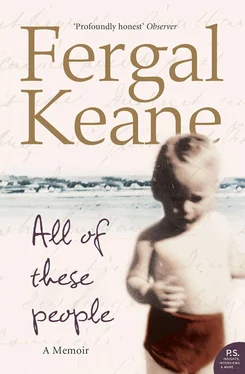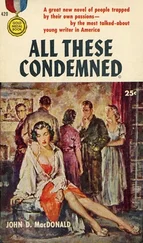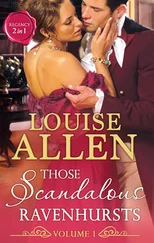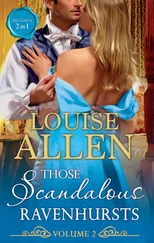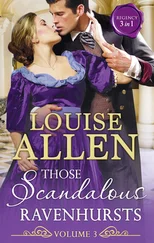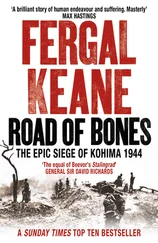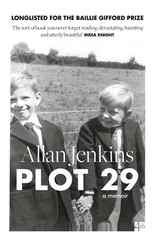Oh we’re off to Dublin in the Green in the Green .. ., Where the rifles crash and the bayonets flash To the echo of a Thompson gun.
My mother would sing ‘Down by the Sally Gardens’. Her voice trembled on the high notes.
Down by the Sally Gardens, My love and I did meet, She passed the Sally Gardens, With little snow-white feet. She bid me take love easy As the grass grows on the weir Ah but I was young and foolish And now am full of tears.
My parents were the first to foster in me the idea that I might someday be a writer. The first stories they read to me were Irish legends. As I got older they urged me to read more demanding works. I believe my first introduction to the literature of human rights came when my mother gave me a copy of George Orwell’s Animal Farm when I was around ten.
My father wrote plays and poems, but it was his gift for interpreting the writings of others which made him one of the most celebrated Irish actors of his generation. Sometimes when my father was lying in bed at night rehearsing his lines I would creep in beside him. After a while he would switch out the light and place the radio on the bed between us. We would listen to a late-night satirical programme called Get An Earful of This which had just started broadcasting on RTE. Get an earful of this, it’s a show you can’t miss. The show challenged the official truths of Ireland and poked fun at its political leaders. My father delighted in this subversion. In my mind’s eye I can still see him beside me laughing, his face half reflected by the light shining from the control dials of the radio, the red tip of his cigarette glowing in the dark and me falling asleep against his shoulder.
Nothing in either of my parents’ natures fitted the grey republic in which they grew up. Sometimes my father’s outspokenness could get him into serious trouble. Once he was hired to perform at the annual dinner of the Donegalmen’s Association in Dublin. The usual form was for the President of the Association to speak, followed by a well-known politician, and then for my father to recite poems and pieces of prose.
On this particular night the politician was a narrow-minded Republican, Neil Blaney, who in 1957 was Minister of Posts and Telegraphs, the department which controlled RTE, my father’s place of employment. At the time the government of Éamonn de Valera was making strenuous efforts to bring RTE into line after some unexpected outburst of independence on the part of programme-makers. My father later claimed that Blaney had denounced the drama department at RTE in the course of his speech to the Donegalmen. The historian Professor Dermot Keogh went to the trouble of researching the old files on the incident. He published the official memorandum a dry account of what was surely an incendiary occasion:
Before the dinner started Mr Keane left his own place at the table and sat immediately opposite where the Minister would be seated. When the Minister arrived, and grace had been said, Keane began to hurl offensive epithets across the table at the Minister and had to be removed forcibly from the Hall. Mr Keane was suspended from duty on 22nd November.
Quoting a civil service inter-departmental memorandum, Professor Keogh wrote:
Described as ‘a substantive Clerical Officer’ who had been ‘seconded to actor work as the result of a competition held in 1953’, Keane submitted ‘an abject apology in writing for his behaviour.’ He said he had been feeling unwell before the dinner and had strong drink forced on him to settle his nerves, with the result that he lost control of himself and did not realise what he had been saying.
The memorandum added tartly:
The action did not appear to Mr Blaney to be that of a man not knowing what he was doing. Mr Blaney said that Keane came very deliberately to the place where he knew the minister would be and that when Keane arrived in the hall he did not appear to have much, if any, drink taken.
Blaney was vindictive. My father lost his post as an actor and was sent to work as a clerical officer in the Department of Posts and Telegraphs. He didn’t last long and left to work as a freelance actor in Britain. Years later my father told me what he had said to Blaney. Drink was definitely involved but I think my father would have said what he had in any case. He told the minister that his only vision of culture was his ‘arse in a duckpond in County Donegal’. Keeping with the marshy metaphors he said that as a minister Blaney was as much use as ‘a lighthouse in the Bog of Allen’.
There was uproar. My father told me it was a price well worth paying. His verdict, nearly thirty years later, was: ‘That ignorant gobshite! What would he know about culture?’
Years later Blaney would achieve notoriety when he was sacked from the cabinet amid allegations that he had been involved in smuggling arms to nationalists in Northern Ireland.
My first memory of childhood is of clouds. They are big black clouds and they sit on the roofs of the houses in Finglas West. I see them because I have run out of the house. I cannot remember why. The garden gate is tied with string. I cannot go any further, so I stand with my face pressed against the bars and watch the clouds. The bars feel cold and I press my face even closer, loving that coldness. I keep watching the clouds, wondering if they will fall from the sky, what noise they will make when they hit the ground. But the clouds just sit there. Then I hear my name being called.
‘Fergal, Fergal.’
It is my mother’s voice.
After a while she comes out and leads me back into the house.
There is silence inside. My father is upstairs. At this age I know nothing. But I can sense things. There is something about this silence that is not like other silences, not like the silence of very early morning, or the silence of a house where people are sleeping. It is the silence after an argument, as if anger has changed the pressure of the air. I have already learned to live inside my head; in my head there are ways to keep the silence at bay. I stand in the room and feel the silence for a moment and then I go deep into my head and start to dream, back to the clouds and the noise of rain, loud enough to fill the world with sound. This is how things have been from the moment I can remember.
I go to bed and stay awake as late as I can, lying in my room, listening for the sound of his homecoming: footsteps outside the front door, shuffling, a key scratching at the lock, and a voice that sings sometimes, and other times shouts, and other times is muffled, a voice being urged to quietness by my mother.
Drinking. What do you know about drinking when you are six years of age? More than you should is the quick answer. Drinking is someone changing so that their eyes are staring out from some other world to yours, flashing from happy to angry to sad, sometimes all in the same sentence; eyes that are far from you, as if behind them was a man who had been kidnapped and held prisoner; drinking is a mouth with a voice you know but cannot recognise because it is stretched and squashed, like a record played backwards, or the words falling around like children on ice, banging up against each other, careening across the evening with no direction, nothing making sense except the sound of your own heart pounding so loud you are sure every house in the street can hear it. Boom, boom, boom.
You imagine the noise travelling out of your bed and knocking on all the doors, waking up those sane, clean-living Irish families and spilling your secret. You are ashamed. Of that one thing you are certain. Shame. It becomes your second skin. You are sure other people know. Someone will have seen him come home, or heard him making a noise. They can read it in your eyes, in your silences and evasions, in the way you twitch and fidget. After nights lying awake for hours you go to school half sick for want of sleep, your mind miles away. The teacher speaks your name in Irish:
Читать дальше
